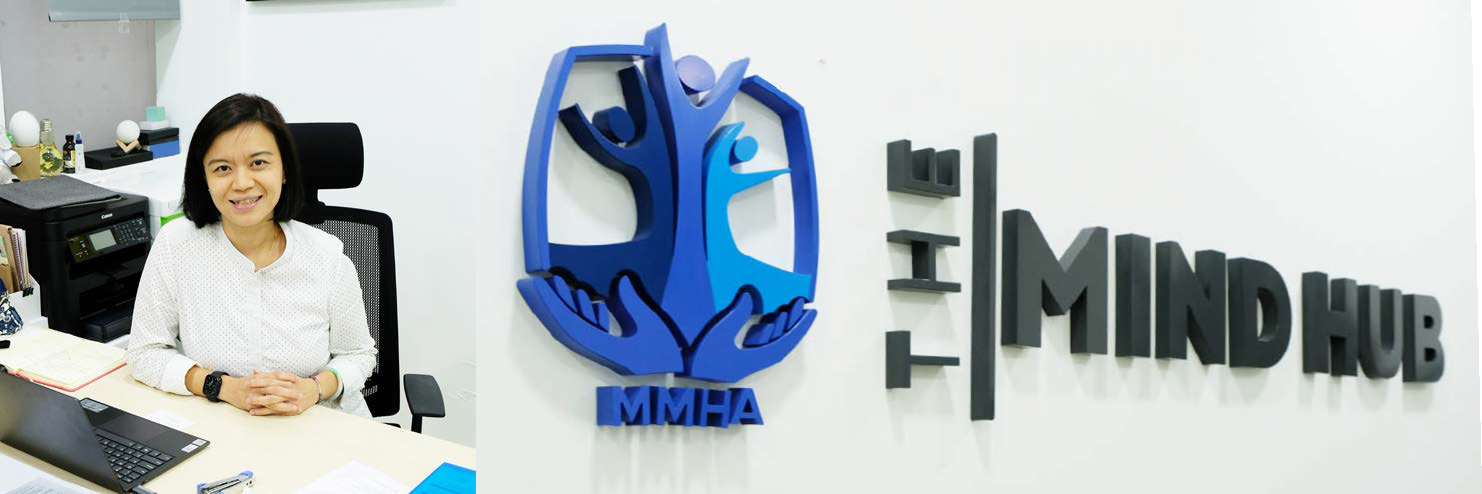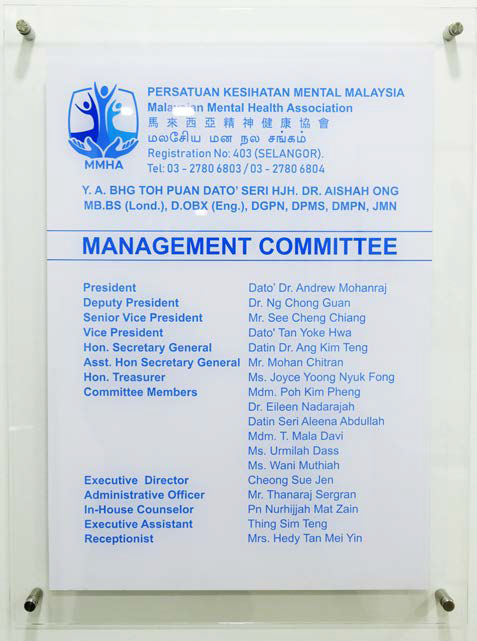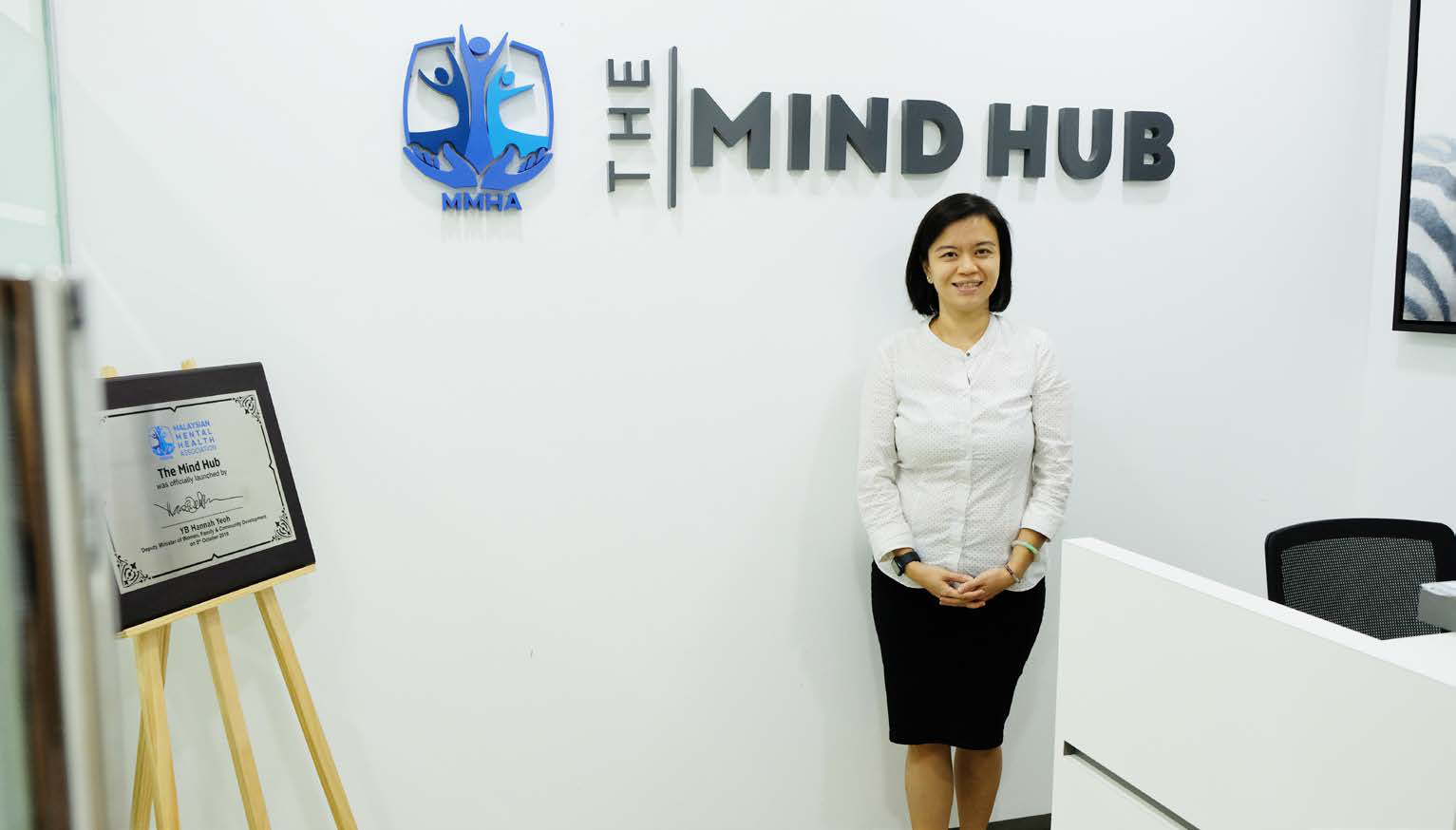22 Oct There’s No Shame in Not Feeling OK!

The Malaysia Mental Health Association (MMHA), which, believe it or not started in 1968 by a group of community leaders and mental health professionals from University Malaya Hospital, says that in this unprecedented time of COVID-19 and all that it has brought (e.g. social isolation, physical distancing, job insecurity, constant reminder of an illness beyond our control, etc), it’s OK to feel some level of anxiety or stress. But, how we approach it is what’s important, according to Cheong Sue Jen, MMHA’s Executive Director. She admits that during lockdown, their mental health support sessions tripled between February to June this year. This is the first time in its history that the organisation has had a waiting list!
The Mind Hub
“The Mind Hub” (a name chosen to be stigma free) located in TTDI, on the outskirts of Kuala Lumpur, is MMHA’s centre where clients (between 18 to 60 years) and their carers can come to meet mental health professionals like counsellors, clinical psychologists, psychiatrists or attend the support groups to get the help they need. Clients can also opt to see trainee mental health professionals who are second year supervised Masters’ students.
For information, it is RM150 to be seen by a qualified mental health professional and RM50 to be seen by a trainee. Those unable to afford the fee are able to apply for a community subsidy from MMHA.
 MMHA’s objectives are to promote mental health in the community, to support caregivers and the family members of mentally ill individuals and to raise the standard of service delivery in the field of mental health. It is a notfor- profit organisation governed by a committee who chart the course for the organisation and ensure that its objectives are met. To this end, the services offered include:
MMHA’s objectives are to promote mental health in the community, to support caregivers and the family members of mentally ill individuals and to raise the standard of service delivery in the field of mental health. It is a notfor- profit organisation governed by a committee who chart the course for the organisation and ensure that its objectives are met. To this end, the services offered include:
1. Psychological support services.
2. Psychological recovery programme.
3. Residential facilities.
4. Mental Health Education including corporate training.
5. Support group.
Services Offered
Based on the National Health and Morbidity Survey in 2015 by the Health Ministry, the prevalence of mental health issues among adults above 16 years is 29.2% or 4.2 million Malaysians. Sue Jen admits that Malaysians tend not to talk about their mental health to avoid taboo and stigma. Data from the 2017 National Health and Morbidity Survey revealed that 29% of Malaysians suffered from depression and anxiety disorders, a rise of 12% from the 2011 figures.
The professionals predict that mental illness is expected to be the second biggest health problem in Malaysia after heart disease in 2020. The myth of people with mental illness being psychotic, dangerous or violent is just that. In fact, anxiety and depression are the main issues for Malaysians facing mental ill health and most remain quiet about it to avoid being judged and labelled “mad”. There is no doubt that the recent COVID virus and lockdown, has left many of us feeling isolated and insecure, which will have exacerbated psychological issues for many people.
This is why MMHA feel strongly about working with their clients and caregivers to manage mental ill health rather than hoping the problem will go away. Most of their clients tend to be working and living in the community so as well as the face-to-face support, MMHA also provide workplace outreach work and researchbased education called, Mental Health First Aid. They want to prevent normal anxiety from escalating to chronic anxiety. Early detection and intervention are important since anxiety can grow worse over time if left untreated, according to Sue Jen. The American Psychological Association stresses that to feel anxious is a normal human reaction (e.g. feeling nervous before an exam or apprehension about getting married) but when it begins to continuously interfere with daily life functions and presents in poor concentration, memory problems, disrupted sleep patterns and mood swings, then being able to seek the necessary help is important.
Mental Health First Aid Course

Back to the Mental Health First Aid Course, this accredited, licensed and well-recognised course that began in Australia is a 12- hour learning programme that teaches adults how to provide mental health first aid to friends, family and colleagues. MMHA is the only organisation in Malaysia that holds the license for the programme which has been adapted for the Malaysian setting. Sue Jen says that participants will learn the signs and symptoms of mental health problems, understanding the first responder role, where and how to get help, etc. because early intervention is important to prevent a mental health problem from becoming more serious.
Those who complete the course will receive a Mental Health First Aid accreditation which is valid for 3 years. Also in MMHA‘s stable of education programmes is the Caregiver Education Course and a 1-day course in Understanding Mental Illness.
Having the community at its heart is the secret of MMHA’s longevity and success. There is no intention to deviate from this policy, and in fact, the organisation plans to expand the Mental Health First Aid programme into work place settings and re-open its residential facility by 2022. The home is currently being modernised and renovated so that it is fit for purpose to house both men and women with mental illness.
The Mind Hub
Malaysian Mental Health
Association (MMHA)
A-2-8 Plaza TTDI,
Jalan Wan Kadir 3
Taman Tun Dr Ismail
60000 Kuala Lumpur
03-27806803
admin@mmha.org.my
https://www.facebook.com/MMHAOfficial
www.mmha.org.my



